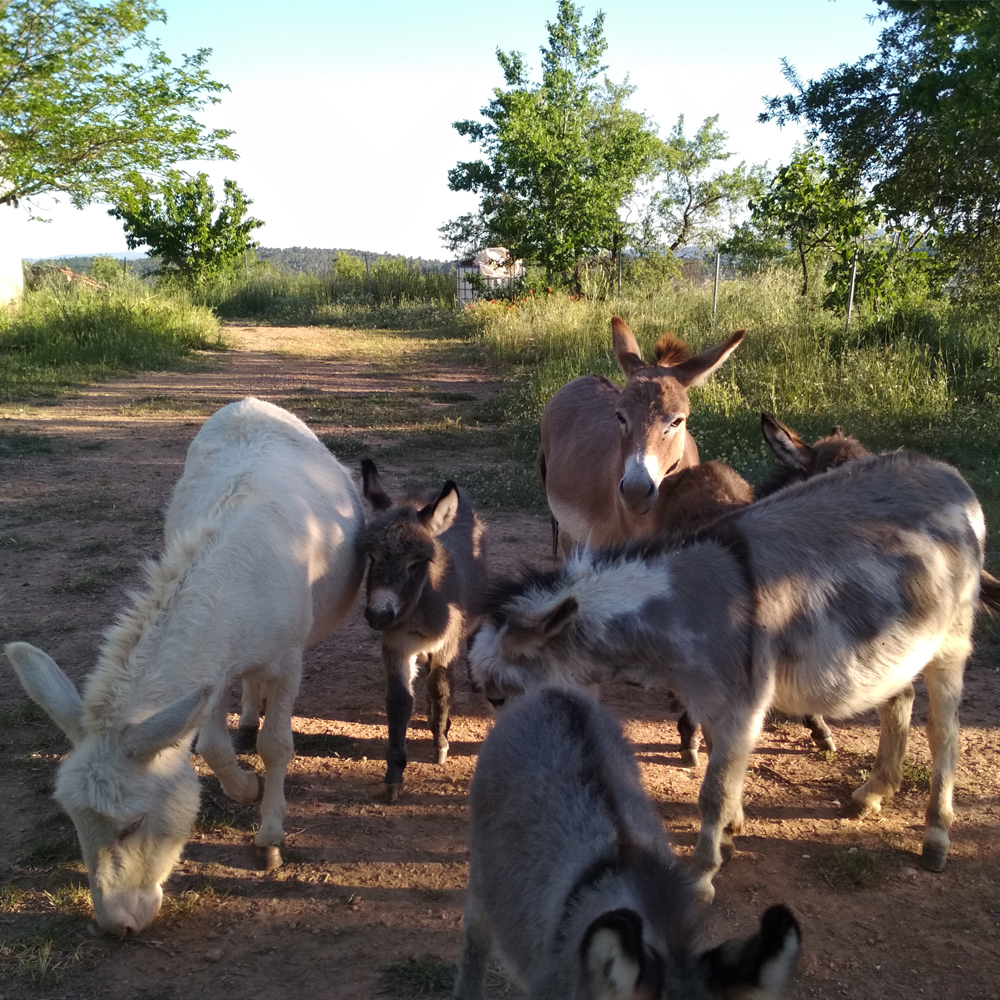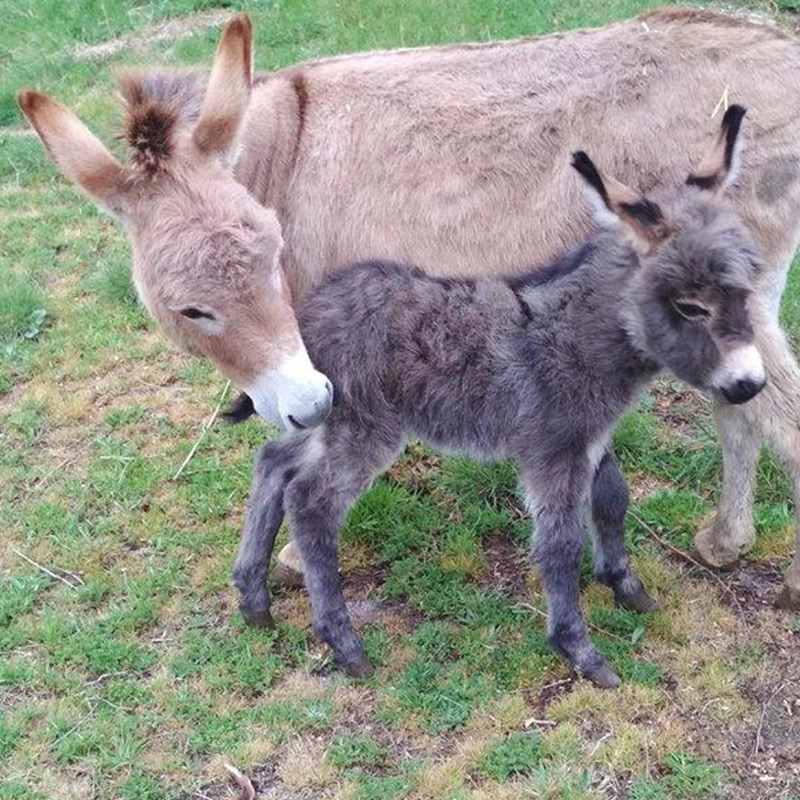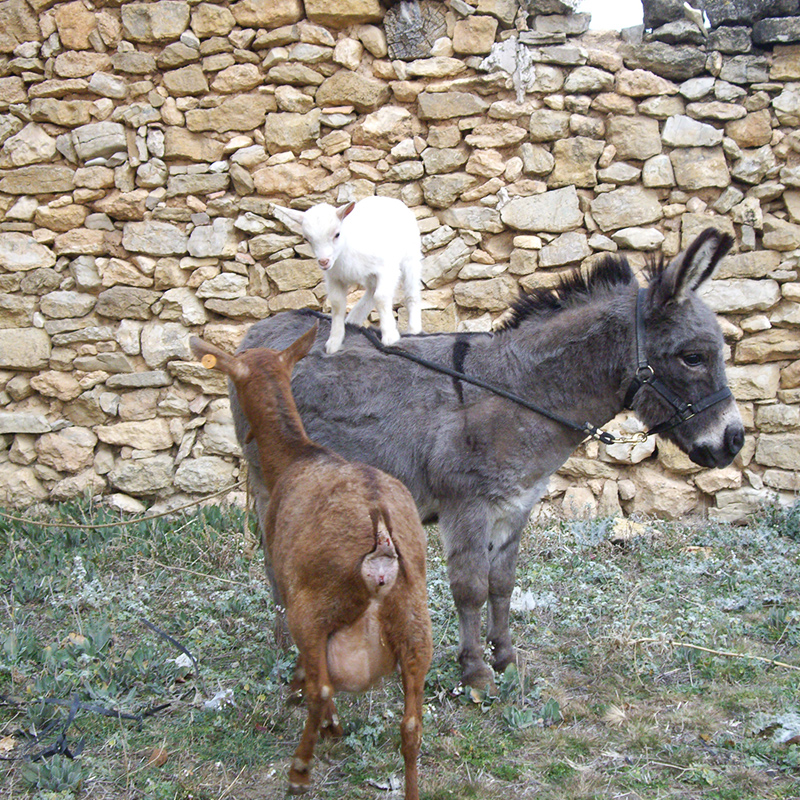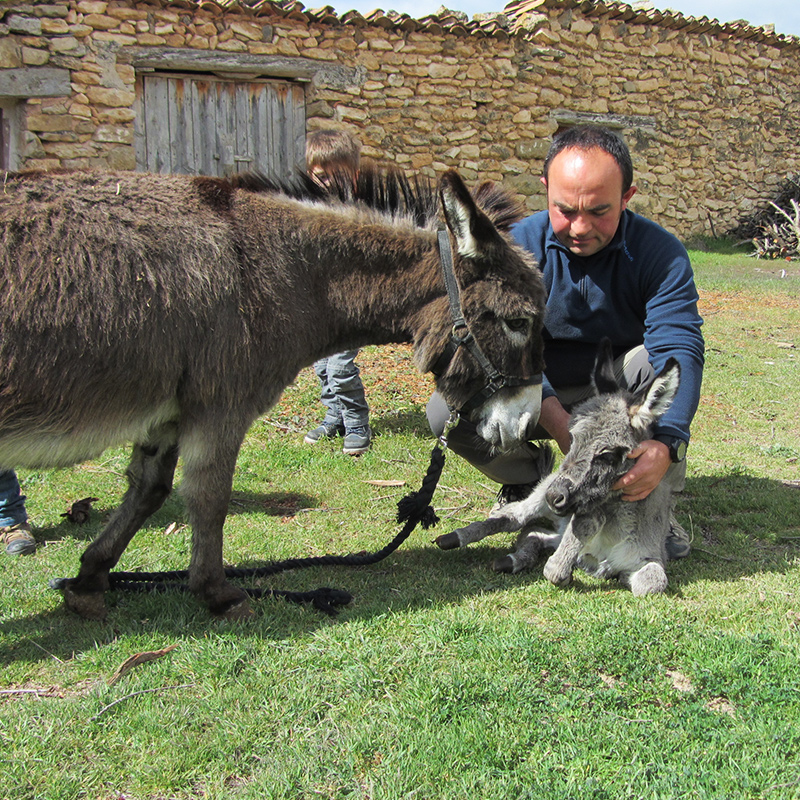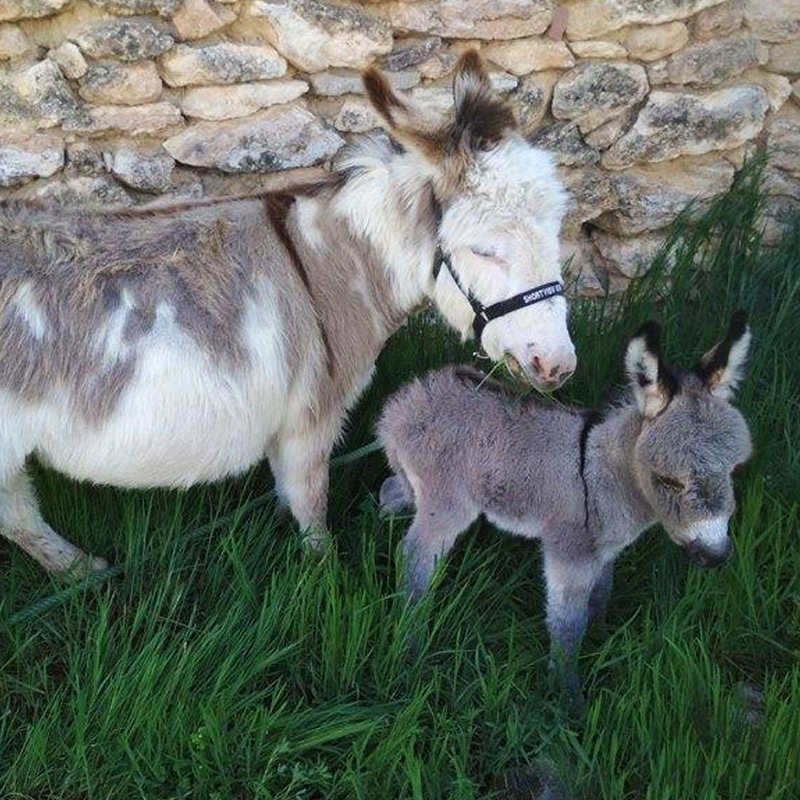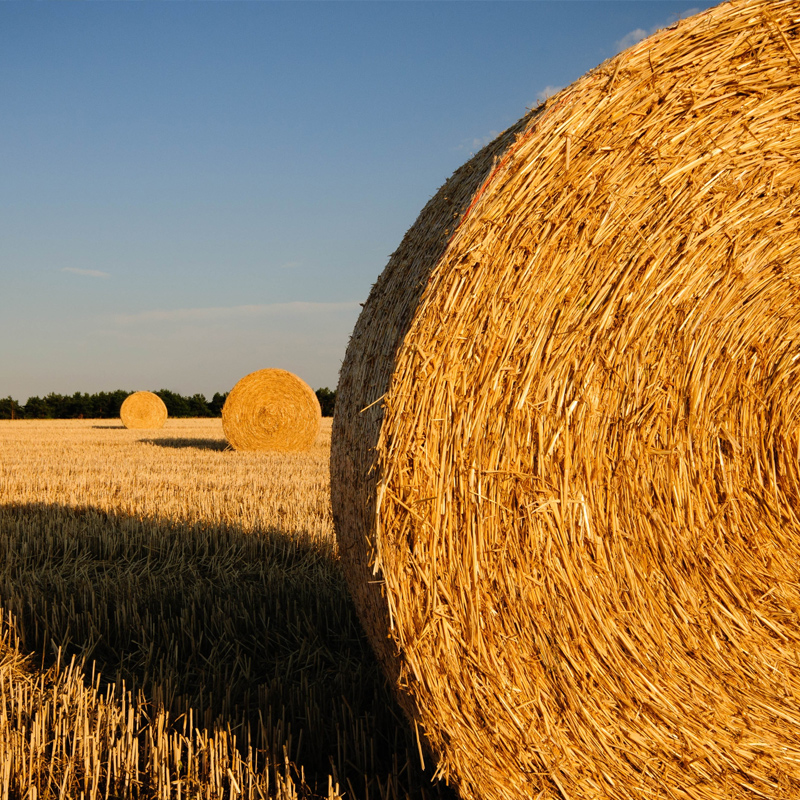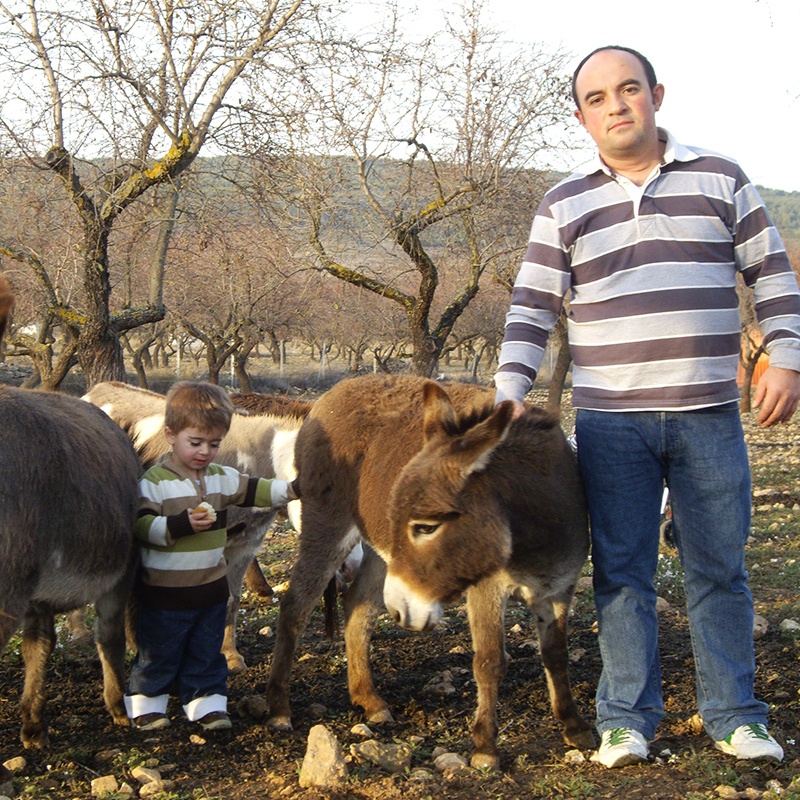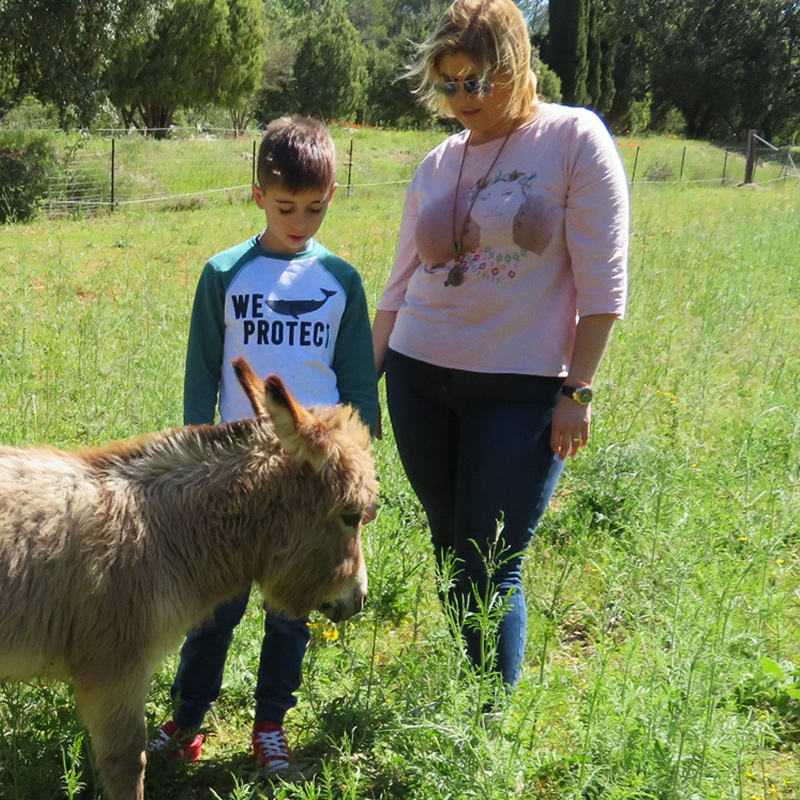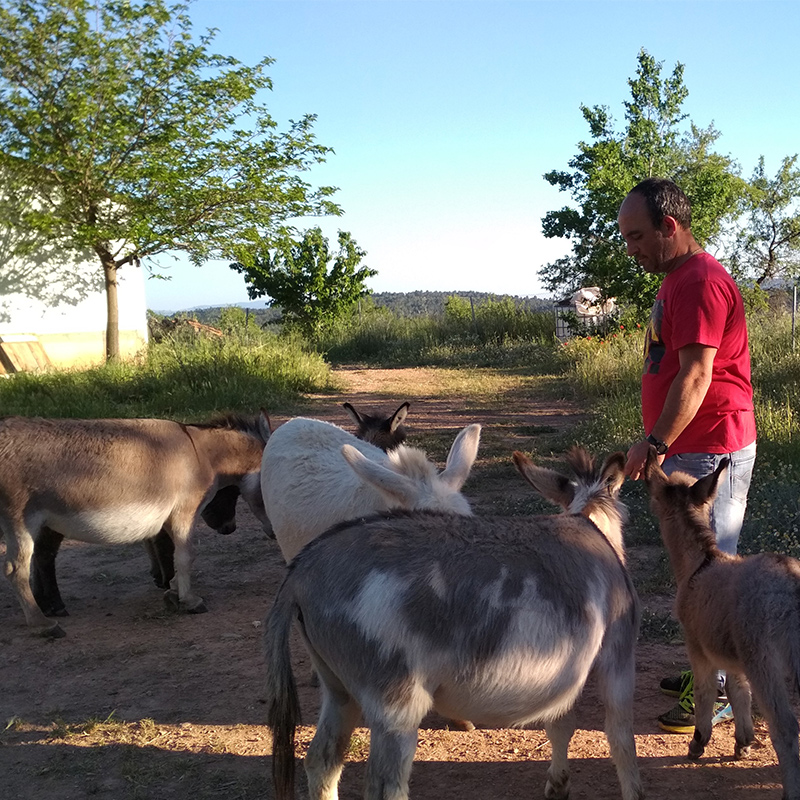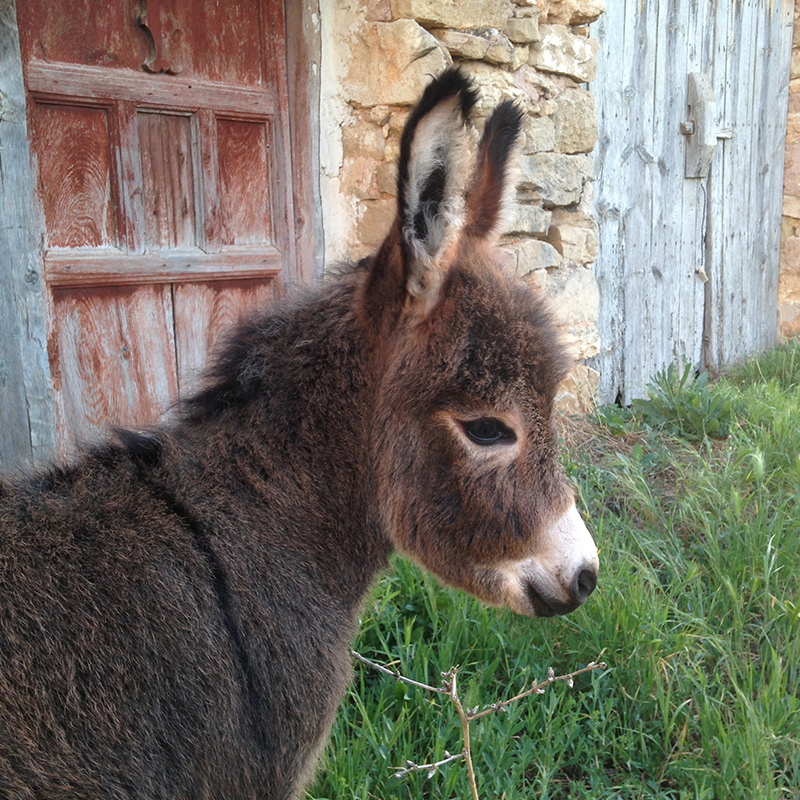Frequently asked questions
Are they aggressive or do they pose any danger to their owners?
Miniature donkeys are affectionate and harmless animals, very sweet but very stubborn. It is very rare for a miniature donkey to kick or bite. They are good companion animals or pets and, if you have space to house them, such as a garden or a plot, they can also be used as “lawn mowers”.
What is the maximum size of a Mediterranean miniature donkey?
The standard of the Mediterranean miniature donkey breed to be able to be registered as so is a maximum height of 36″ (at the age of 3 years old) but most of them are between 30″ and 34″.
How long do miniature donkeys live?
Miniature donkeys have a very long life, and, with good care and adequate food, they can live up to 35-40 years on average, and can even reach 50 years of life.
Do we need a stable?
Yes, you should have a place under cover, even if it is a shed, in order to provide shelter. Donkeys do not have a waterproof coat and get wet with heavy rain.
Can a miniature donkey make friends with my dog or my goat?
You must always be very careful when putting together a dog and a donkey. Dogs become friends with donkeys, but they need time to get to know each other and have mutual trust. Regarding goats, they eventually become used to it and, why not? They can become good friends.
Can I have only one donkey?
Yes, of course, although it is not recommended. They love to play and be in company.
What personality do miniature donkeys have?
These donkeys are among the most affectionate and friendly of their kind. They are docile, loyal, playful and affectionate animals. They are very social animals, who give and receive a great deal of attention. The more time you spend with them, the better. They are easy to train, and they learn quickly. A miniature donkey is a lifelong friend and should not be considered a short-term pet. Miniature donkeys are not stubborn; in case of perceived danger, the instinct of the horses leads them to flee, while a donkey tends to look more into the situation and determine the best approach. They love to go for a walk with their owners.
